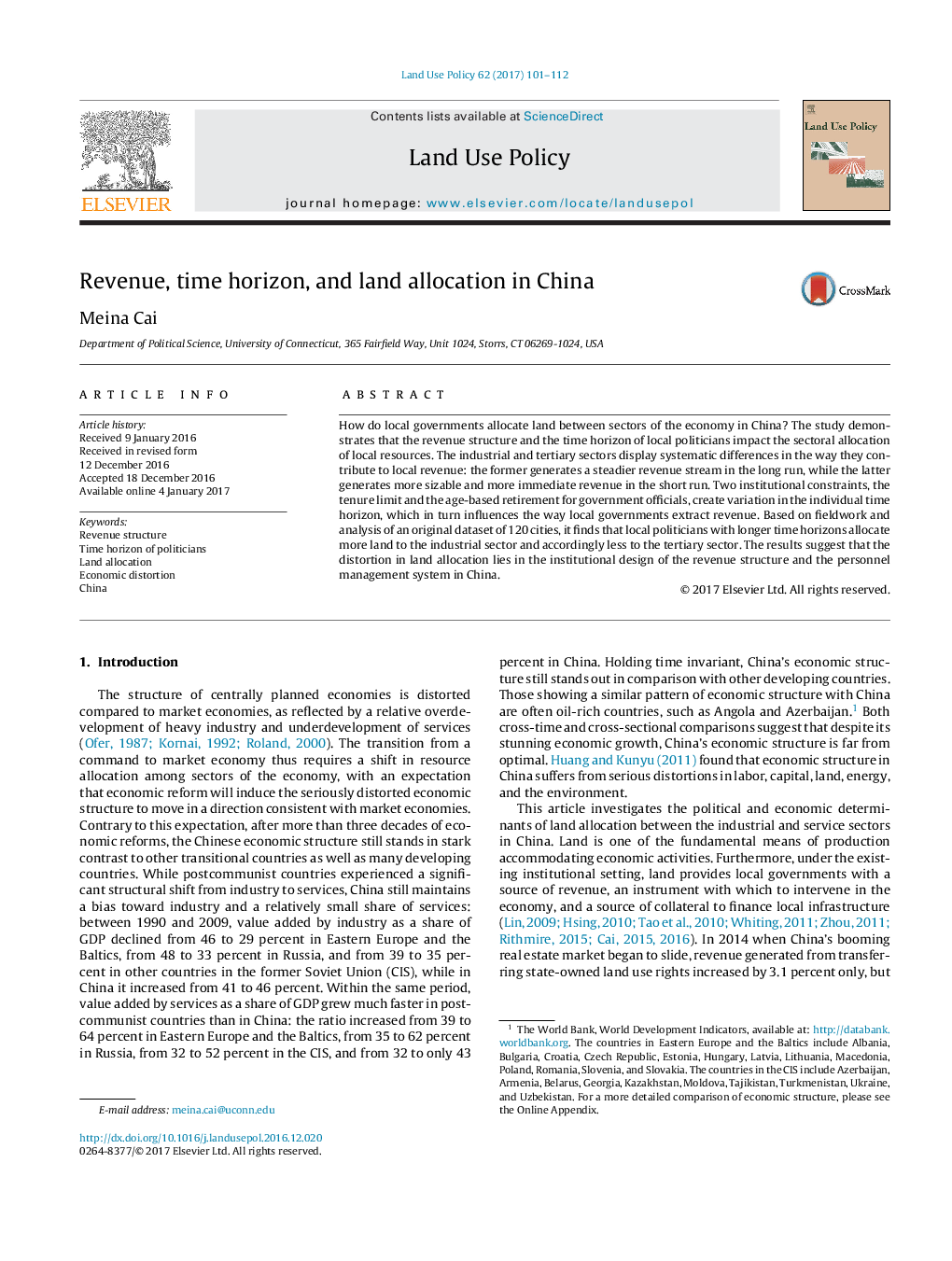| Article ID | Journal | Published Year | Pages | File Type |
|---|---|---|---|---|
| 6461186 | Land Use Policy | 2017 | 12 Pages |
•Revenue structure influences the sectoral allocation of land.•Both taxes and land-generated fees exhibit systematic variation across sectors.•Time horizon of local politicians influences the sectoral allocation of land.•The time horizon is affected by the tenure limit and the age-based retirement system.•Local politicians with a shorter time horizon allocate more land to services.
How do local governments allocate land between sectors of the economy in China? The study demonstrates that the revenue structure and the time horizon of local politicians impact the sectoral allocation of local resources. The industrial and tertiary sectors display systematic differences in the way they contribute to local revenue: the former generates a steadier revenue stream in the long run, while the latter generates more sizable and more immediate revenue in the short run. Two institutional constraints, the tenure limit and the age-based retirement for government officials, create variation in the individual time horizon, which in turn influences the way local governments extract revenue. Based on fieldwork and analysis of an original dataset of 120 cities, it finds that local politicians with longer time horizons allocate more land to the industrial sector and accordingly less to the tertiary sector. The results suggest that the distortion in land allocation lies in the institutional design of the revenue structure and the personnel management system in China.
